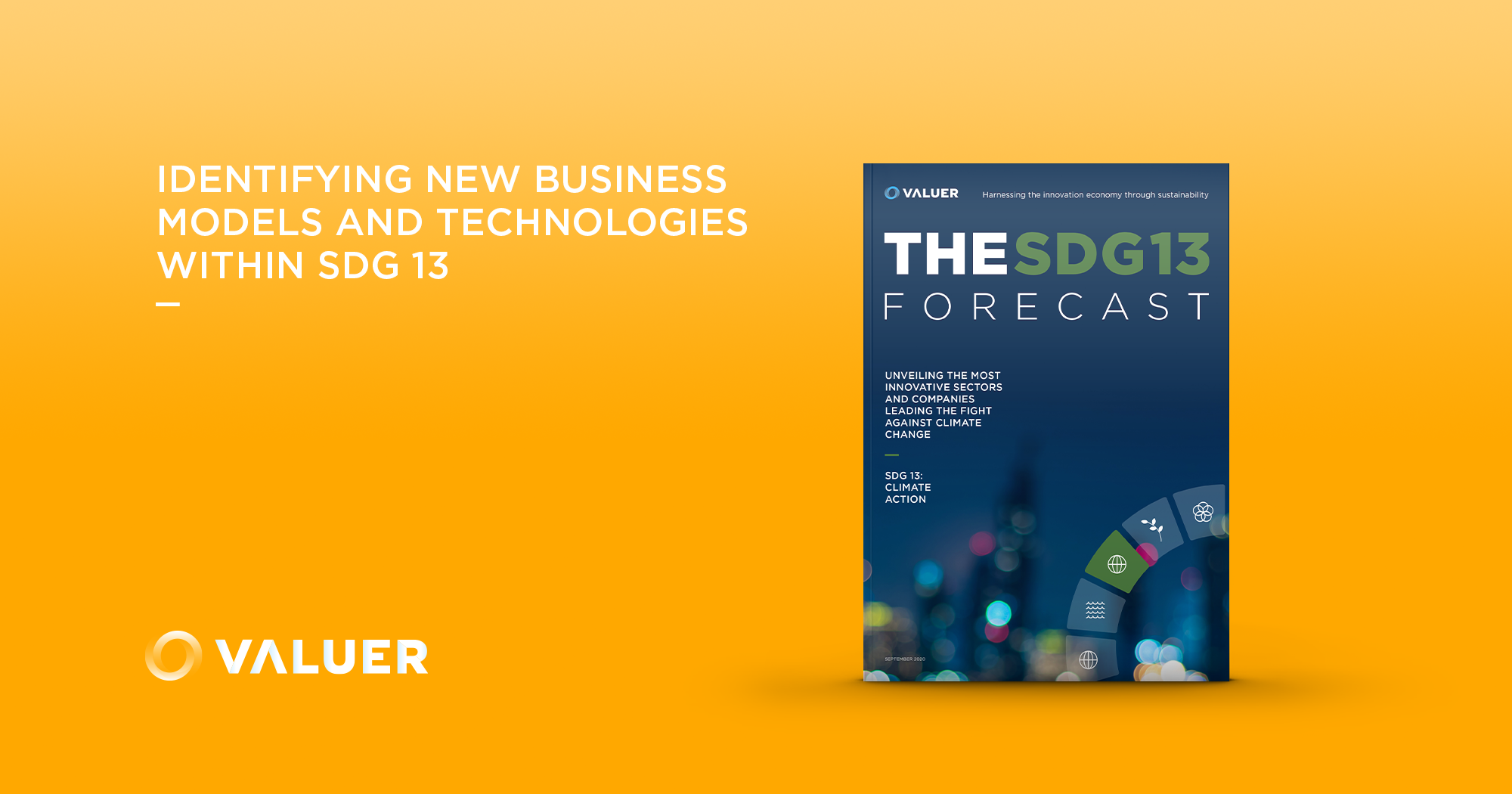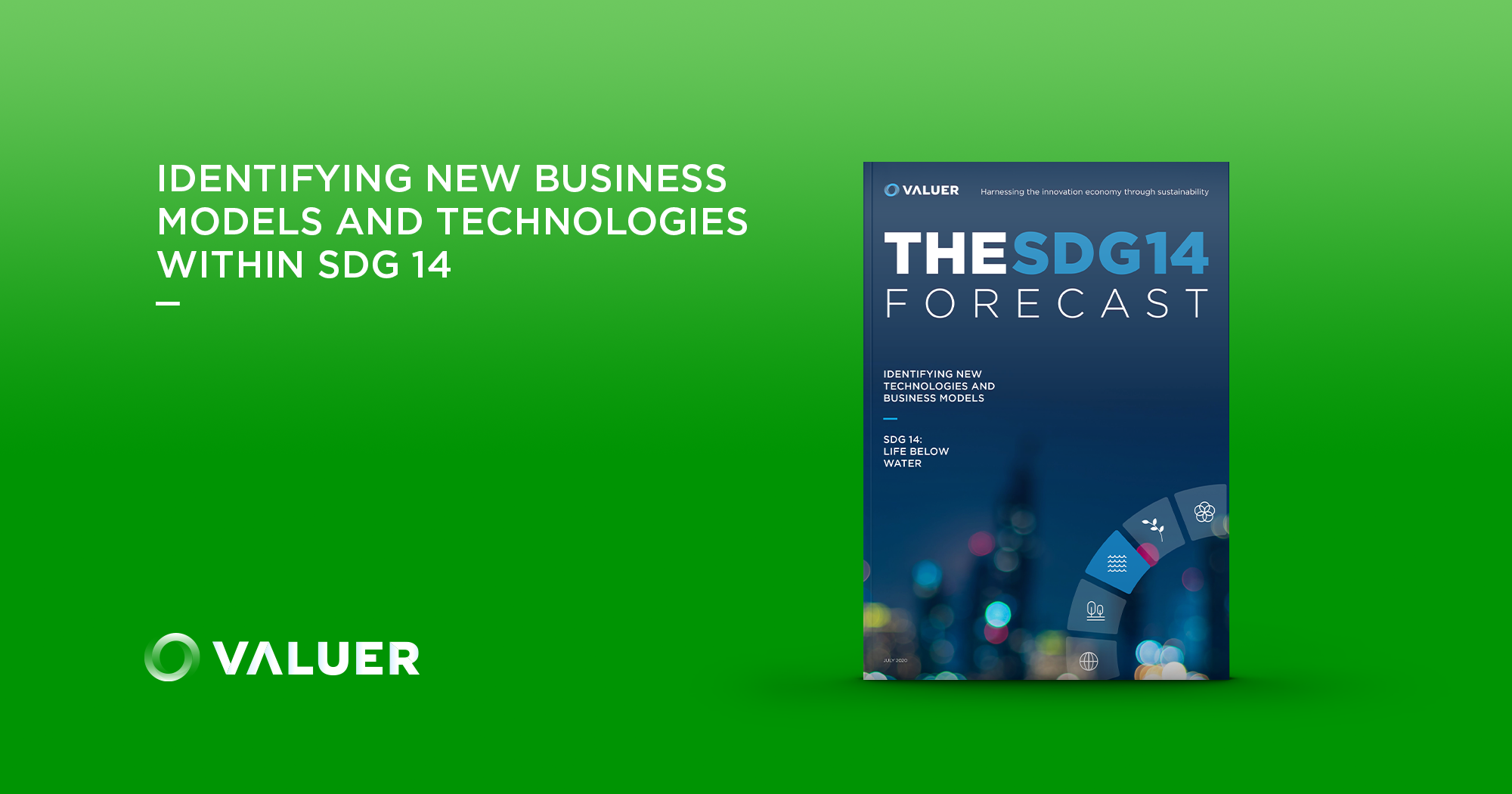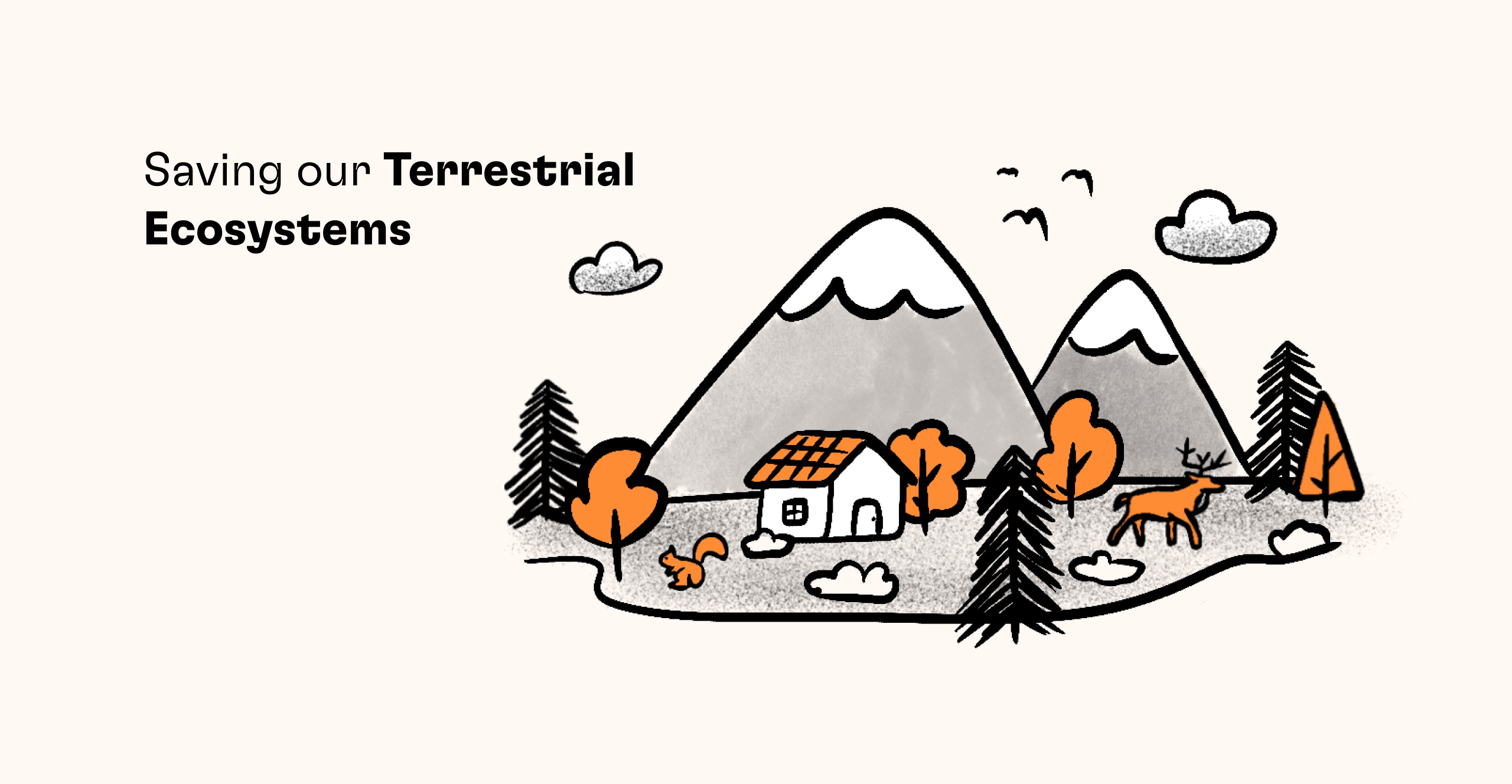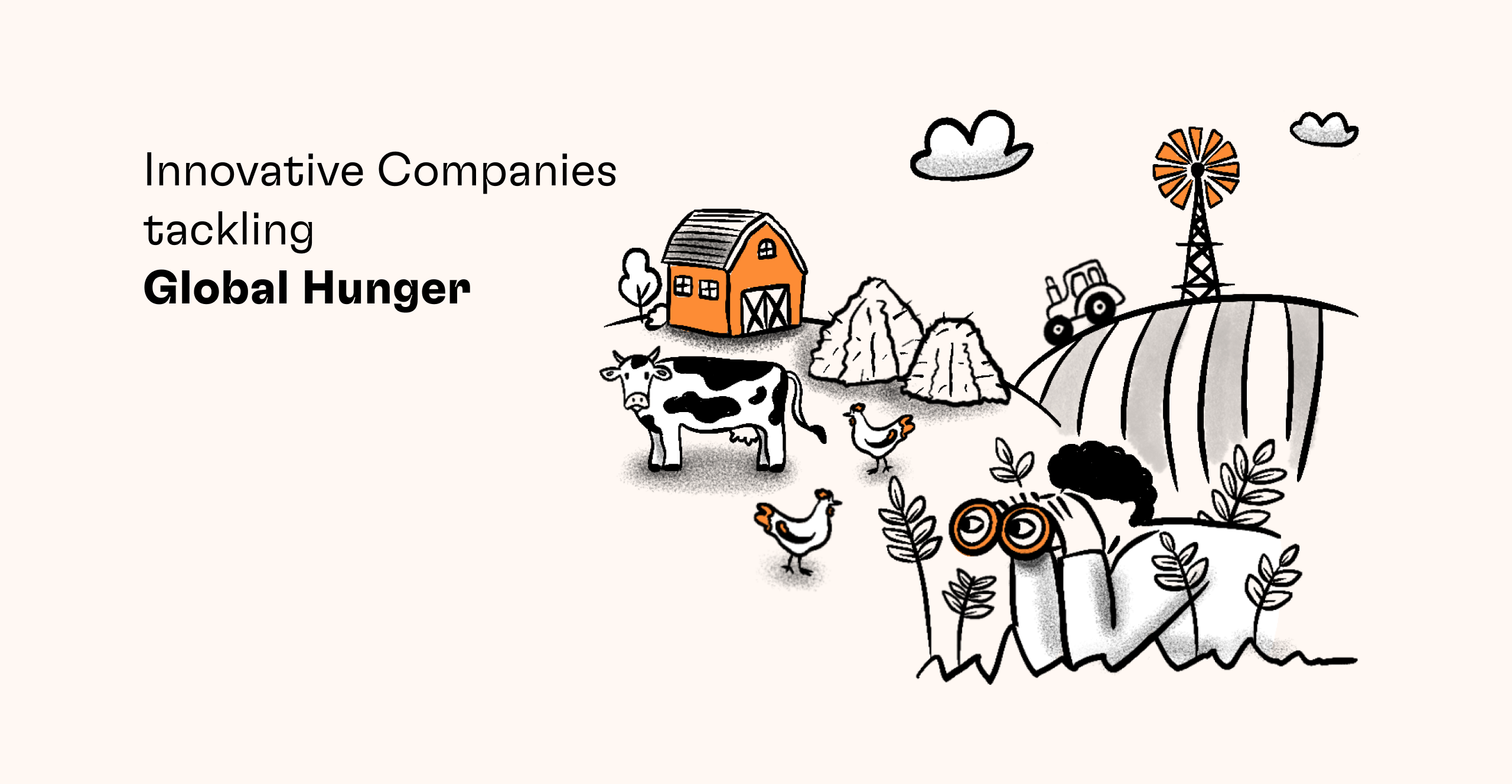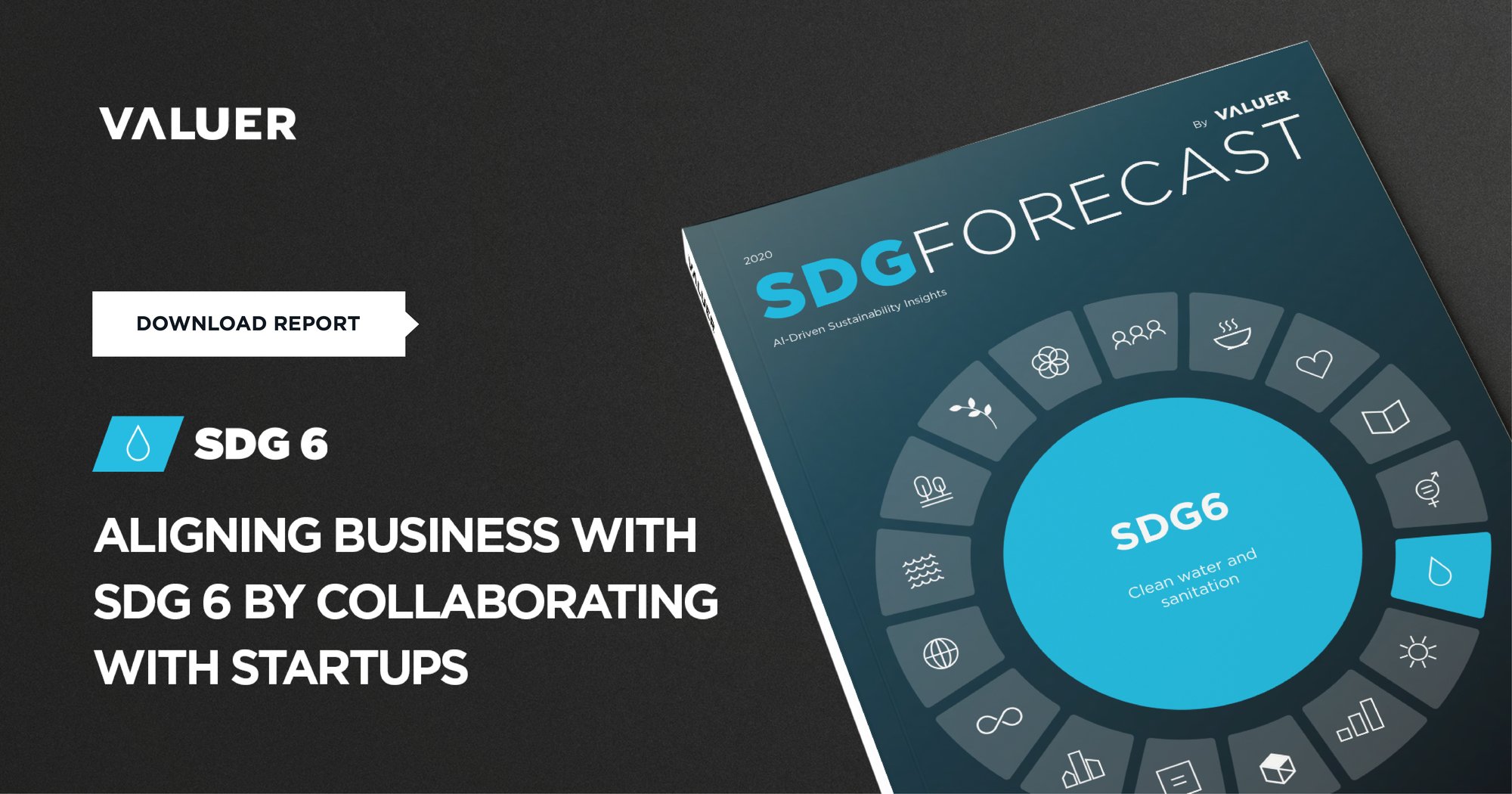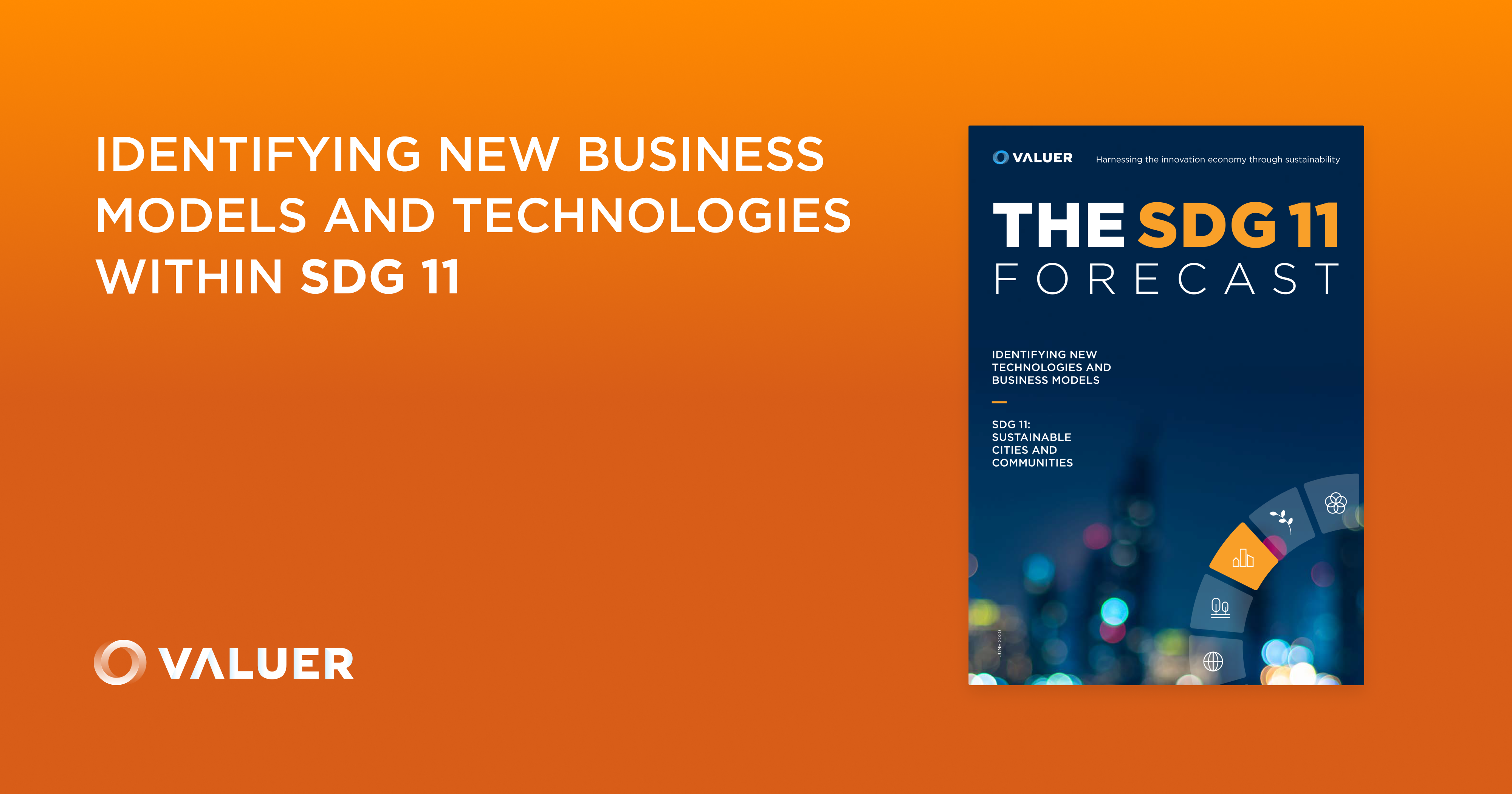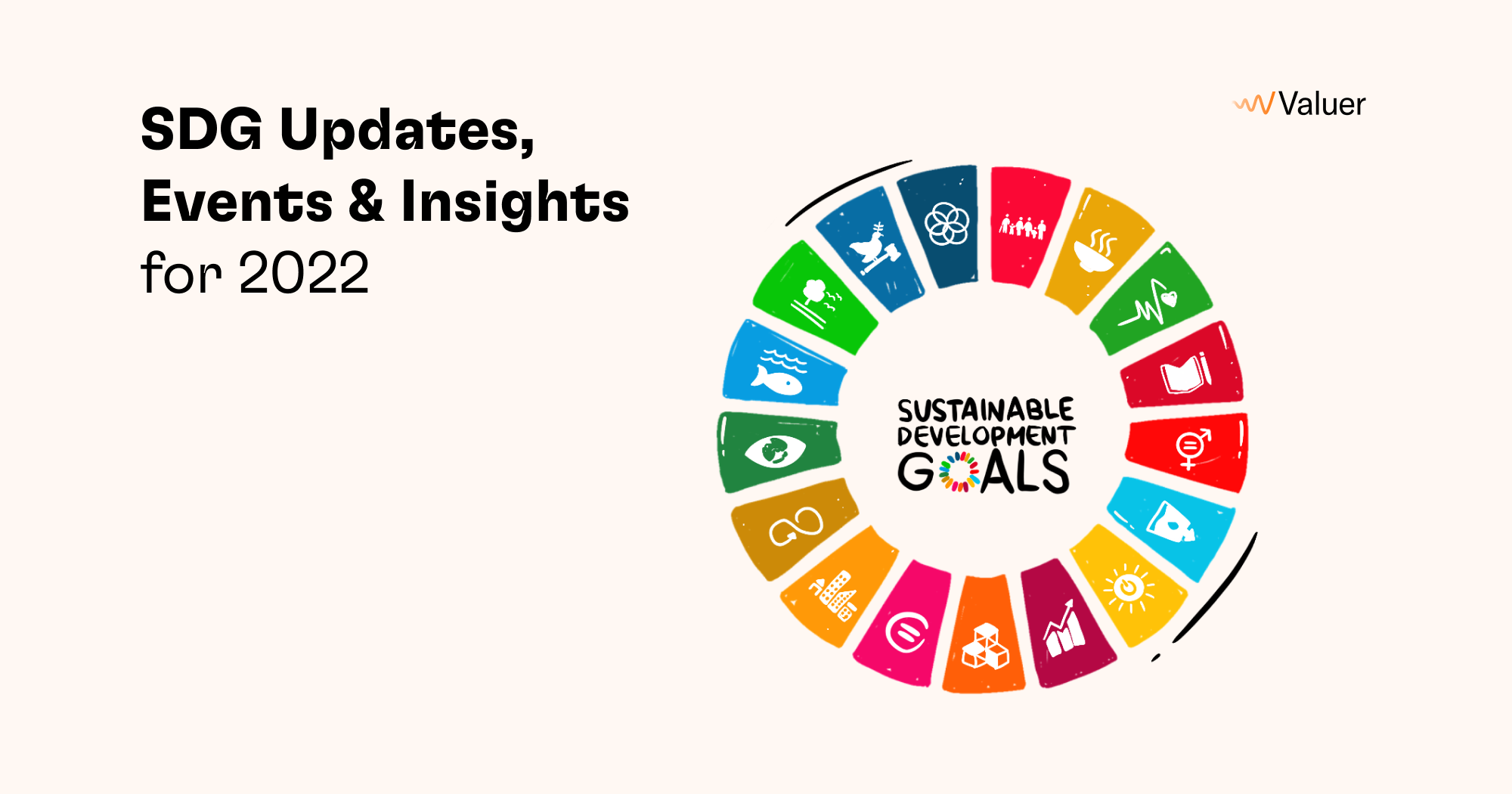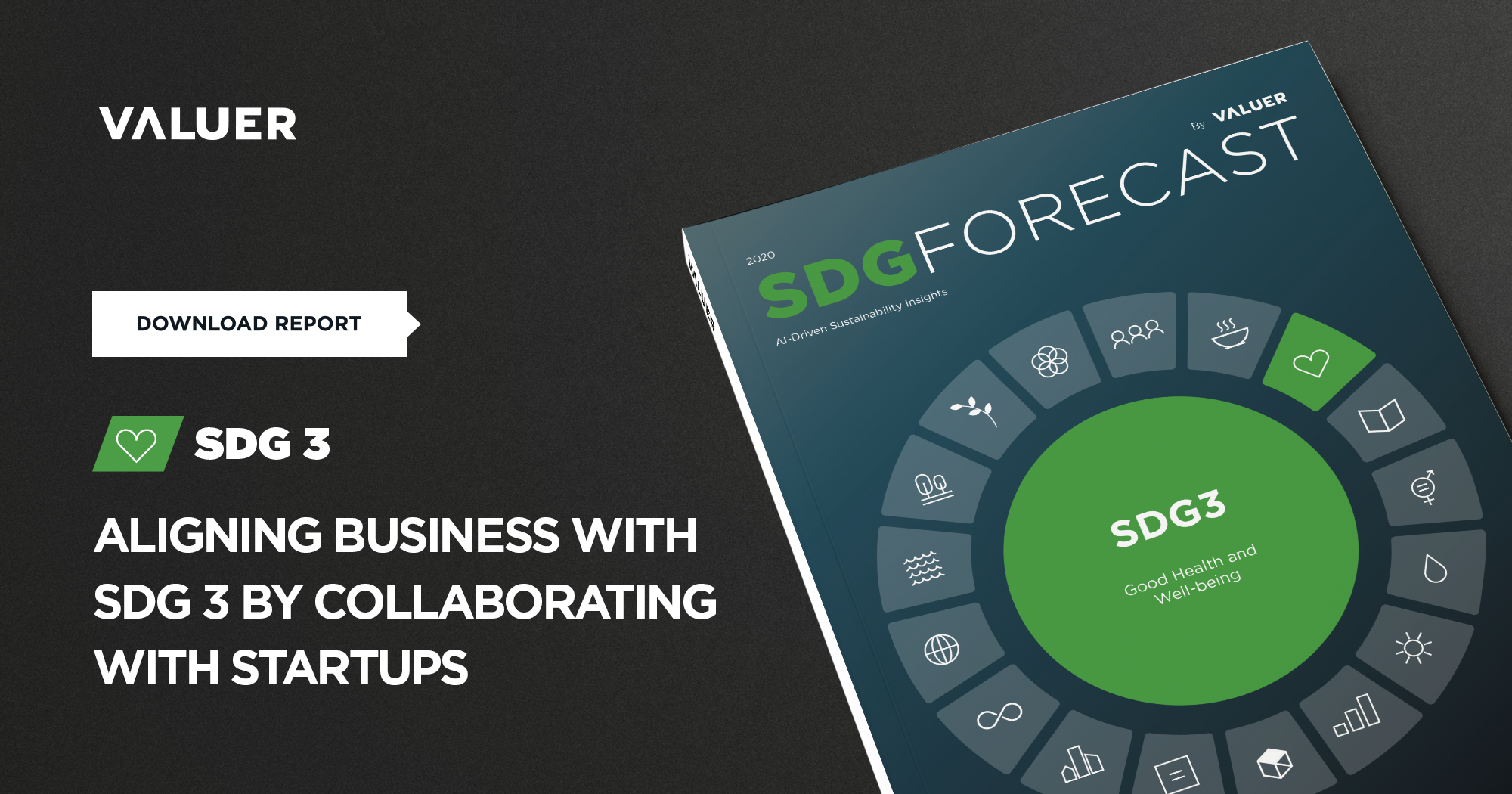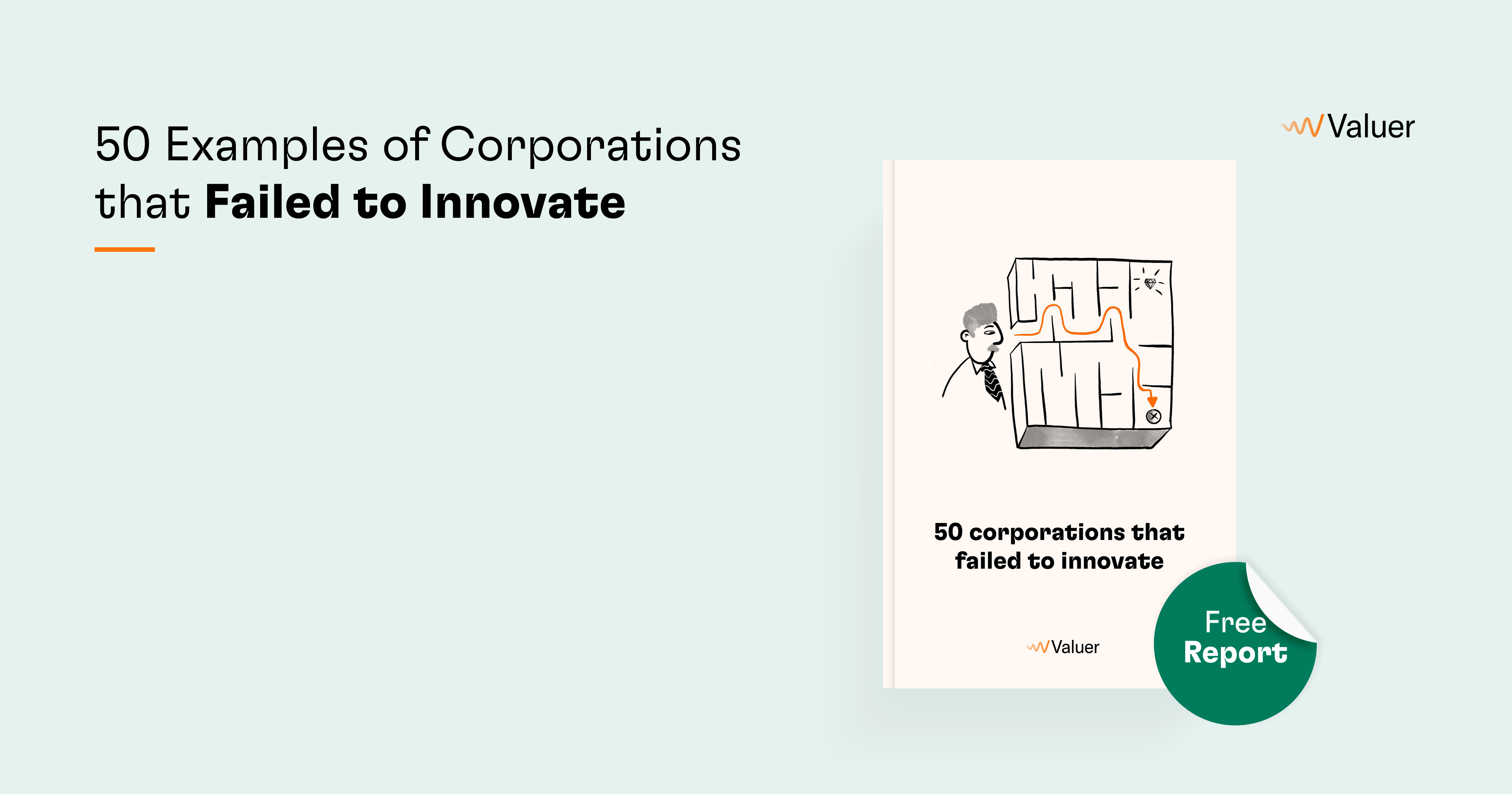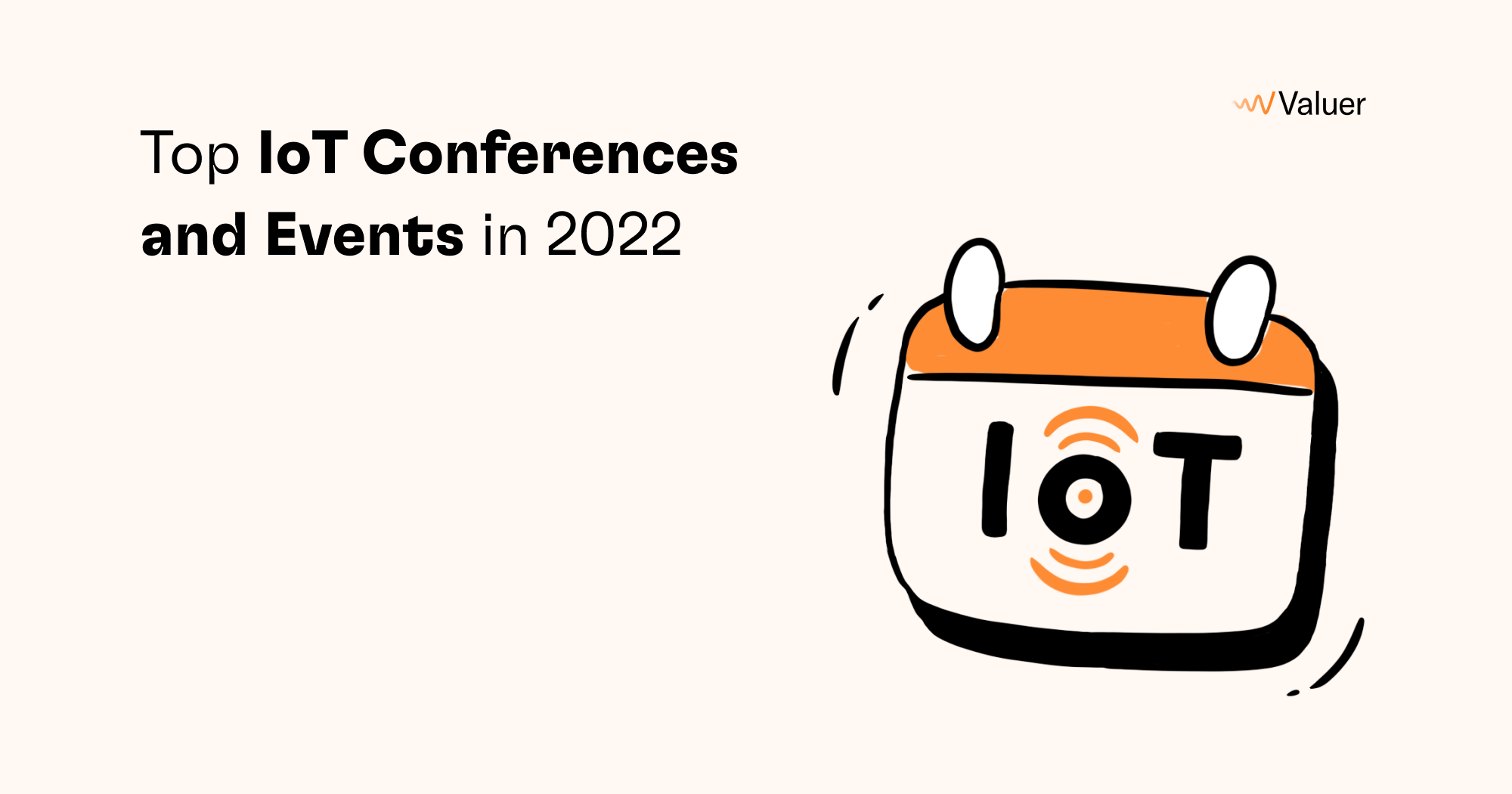*Updated December 2022
Every month Valuer publishes one SDG Forecast report that demonstrates how large organizations can engage with a specific UN Sustainable Development Goal by collaborating with startups.
This month, the report focuses on SDG 7: Affordable and clean energy and shows how corporations can become energy-efficient by embracing innovative technology.
The report provides market opportunities, trending technologies, advice for corporations, and three startups whose innovative technology can help corporations become energy efficient.
Moreover, the publication explains how Valuer’s online platform uses AI to help large companies find SDG-related startups that match their unique needs and goals.
Valuer can help organizations find best-matching SDG 7 startups
Valuer is a matchmaking platform that helps corporations discover startups that will boost their innovation. You can write to us or see the magazine to learn how the Valuer platform uses AI to find the best-matching startups.
Organizations that do a great job addressing SDG 7
The full version of the SDG Forecast report (available for download) includes six case studies: three SDG 7-related startups and their technologies explained in detail and three corporations that do a great job at tackling the UN goal.
To provide more inspiration, this blog post lists additional NGOs, governments, corporations, and startups that work toward achieving their sustainable goal.
Sustainable affordable and clean energy startups
Kassel, Germany
Enercast
Enercast is a German technology provider utilizing AI and big data to forecast the performance of renewable energy production plants. The self-learning software products aim to deliver accurate power forecasts enabling renewable energy integration within power grids and energy markets. The company currently delivers forecast data to 20 nations around the world.
Austin, Texas, USA
THG Energy Solutions
THG Energy Solutions helps clients lower their costs and risk, and conserve resources through a web-based energy management system and Automated Demand Response (ADR) solutions. These solutions provide clients with actionable energy statistics whilst reporting on their sustainability and energy management.
Hod Hasharon, Israel
FSIGHT

Israeli startup FSIGHT combines AI and big data to forecast and analyse energy flows to help implement smart energy grid management. Their solutions combine a centralised computing capability that forecasts grid and customer behaviour, alongside autonomous agents suited to local areas for ultimate optimization.
Austin, Texas, USA
Grid4C
Grid4C is a US-based company leveraging the power of AI and machine learning analytics to extract maximum business value from smart meters and IoT devices for energy providers and consumers. Grid4C has expanded to four continents and are currently analyzing billions of meters and devices to predict analytic solutions.
California, USA
AutoGrid
AutoGrid is a startup from the US that utilizes the knowledge of world-class software architects, engineers, data scientists and energy experts to apply in-depth energy analytics to help solve the world’s most pressing energy concerns. Their Energy Internet applications allow energy providers to deliver clean and affordable energy in the primarily decentralized sector.
Ottawa, Canada
BluWave-ai
Canadian-based BluWave-AI utilizes the power of AI to provide clean and smart energy solutions aiming to help companies transition to the use of renewable energy sources. BluWave-AI’s use of AI and big data analytics helps to compare and balance the costs, availability and reliability of several energy sources in real time, helping support prime energy optimization for clients.
Schlieren, Switzerland
Pexapark
Pexapark is an award-winning renewable enterprise software company based in Zürich, Switzerland. Their mission is to improve renewable energy sales in subsidy-free markets by facilitating the power purchase agreement (PPA) process and offering renewable energy investors a turn-key solution to manage energy sales and financial risks of their assets. Together with its expert advisors, Pexapark offers clients the full scope of tools and knowledge to help maximize the risk-return of renewable energy investments.
Munich, Germany
Enmacc
Enmacc is an energy focused, OTC trading platform with the ability to increase the liquidity of energy markets by offering more products and including more regions than other trading platforms. Customers benefit from the wide variety of business potential that Enmacc offers through their innovative approach to traditional energy trading.
Newbury, England
PassivSystems
PassivSystems smart energy management system is one of the leading systems to support energy control in order to make energy more affordable and increase their customers financial return. With a system that improves energy efficiency, PassivSystems efforts have not only a high impact on households, business or asset owners but also on the world by helping reduce global emission with their product.
Berlin, Germany
Grid Singularity
Grid Singularity offers a decentralized energy data exchange platform using green blockchain technology. The company's purpose behind developing their D3A engine technology was to keep individuals and the environment in the center of the energy market. The company’s innovative grid management system allows for simplifying transactions related to the energy market.
Houston,Texas, USA
Data Gumbo
Data Gumbo streamlines smart contract management for industrial customers through its Blockchain-as-a-Service (BaaS) platform. Benefits of their service is the reduction in cost and their intracompany service like reporting, resource sharing within the organization which improves transparency and their operations focused work.
Austin, Texas
Grid+
Grid+ provides solutions for the energy industry by leveraging cryptocurrencies and blockchain technology. It’s aim is to create the foundation for an efficient and inclusive financial future. Products the company offers to support these goals are amongst other GridPlus Energy, a software to identify lower energy prices and support the adoption of green energy.
Hamburg, Germany
Ponton
Ponton, an IT service provider based in Hamburg, uses blockchain-based applications to innovate the energy sector. They focused their work on the value chain of the European market but have since spread their working field to grid management and consulting with the goal in mind to standardize market processes, to support their clients business by reducing their costs and efforts.
Melbourne, Australia
GreenSync
GreenSync recognized the potential in the transformation of the energy landscape and developed a smart software control to optimize the use of energy resources in electricity grids. The goal is to reduce energy consumption by changing behavioural patterns. The company does so by analyzing data, energy usage and prices and researching trends.
Portland, Oregon, USA
LO3 Energy
LO3 Energy develops blockchain-based solutions for decentralized energy distribution. With its technology platform, Pando, designed to offer the possibility to trade energy and integrate a unique energy marketplace, the startup seeks to meet the needs of SDG7 and find new solutions more beneficial to the protection of the environment.
Singapore, Singapore
Positive Energy
Aware of the massive efforts needed to contain climate change, Positive Energy is committed to a new approach to fund energy. Through a blockchain-based asset financing, trading, and management platform, the startup prides itself on helping to implement small to midsize renewable energy projects by addressing numerous issues related to their financing.
Vilnius, Lithuania
WePower
We power created a blockchain-based trading platform aiming to offer a green energy marketplace to connect companies, no matter the size, and allow them to purchase green energy directly from producers, with the guarantee of competitive rates and full transparency.
London ,UK
DeepStream Technologies
DeepStream Technologies has developed a B2B marketplace dedicated to the oil and gas, renewables, and energy infrastructure procurement. Its highly user-friendly, transparent and efficient collaborative platform, designed with user-defined automated workflows guarantees smooth and secured digital transaction.
Davis, California, USA
Sierra Energy
Sierra Energy eliminates the need for landfills in utilizing its proprietary FastOx gasifier to provide a comprehensive waste to energy solution. No more burning, pollutants, toxic byproducts or emissions as the process converts household trash, hazardous waste, tires, medical waste, construction and demolition materials into safe and responsible energy.
Massy, France
Cryo Pur
Cryo Pur prides itself in their innovative responses to major challenges faced by our society such as climate change, air pollution and energy dependency issues. To respond to such significant issues, the startup developed a cryogenic technology that uses organic waste to produce biofuel as a renewable alternative to diesel, and seeks to pave the way to waste valorization projects and develop a local circular economy.
San Francisco, California, USA
Brightmark Energy
To make a positive impact on the world, while addressing future generations, Brightmark Energy provides plastics renewal technology and renewable natural gas (RNG) solutions. The latter aims to create renewable natural gas from dairy, food, and other organic waste collected from the farm. Research shows that RNG from dairy manure would reduce GHG emissions 400 percent when replacing traditional vehicle fuels.
London, UK
Waste2Tricity
Established in 2008, Waste2Tricity provides an energy-from-waste solution for conversion of non-recyclable plastics into electricity and hydrogen, as the exclusive partner of PowerHouse Energy. To address its core mission of maximizing financial returns from ethical disposal of waste, Waste2Tricity is leading numerous projects and creating successful partnerships, the latest one being with Peel Environmental.
Solna, Sweden
C-Green Technologies
C-Green Technology has modernized the hydrothermal carbonization (HTC) method to provide an energy-efficient way of converting wet sludge into high-energy and valuable biofuel. By turning wet biomass into a dry biocoal product, the HTC is committed to stop greenhouse gas emissions caused by organic decomposition.
Sustainable affordable and clean energy companies
Fredericia, Denmark
Ørsted
Titled “the world's most sustainable company”, Ørsted is an energy provider from Denmark, whose vision is to “create a world that runs entirely on green energy”. The company’s goal is to support the aim against climate change by providing green energy that is sustainable.
To help support the SDGs by the UN and especially SDG 7, Ørsted set up twenty sustainable programs. This way the company is able to pinpoint the target areas of their business. The programs are divided into three categories: aligning their business with climate science, potential impacts of the green energy transition and keep being an accountable and responsible business.
At the end of 2019, 89% of Ørsted’s energy came from renewable sources, however the company’s goal is to be a 100% carbon neutral company by 2025. Additionally, their plan is to have a carbon neutral footprint by 2040. This includes their supply chain as well as energy trading.
Tamil Nadu, India
Energyly
Energyly offers monitoring systems for water, diesel and energy. The energy monitoring system is of importance when trying to be more sustainable and enable access to affordable and clean energy.
Its system works by constantly analyzing energy usage through an app, which makes remote control available to anyone. As well as reducing waste, Energyly’s monitoring systems reduce energy bills by up to 25% and support using energy more efficiently.
With SDG 7 in mind, Energyly has saved 6500 MHW and reduced over 9,500 tonnes of CO2.
Düsseldorf, Germany
Uniper
Uniper is a German energy company combining a balanced portfolio of technologically advanced large-scale assets with technical and commercial expertise, enabling it to deliver competitively priced energy products and services.
Uniper’s mission is to produce more energy, including renewable energy, and less CO2 with the moto: Empower Energy Evolution. By decarbonizing the energy sector and promoting and supporting positive change for the company, Uniper is committed to Corporate Responsibility, with a 21% reduction in direct carbon emissions between 2018 and 2019.
Aware of the urgent and concerted action that needs to be triggered worldwide, Uniper challenges the energy industry to play an important role in the transition to a carbon neutral future.
At least 20 projects should be conducted by 2022 to contribute to SDG7, including decarbonization, as a focus area for innovation. An effective example of this promise might be the cooperation agreement that was signed in April 2020 between Uniper and multinational company Siemens, for climate protection and secured supply.
Sustainable affordable and clean energy governments
Hawaii, USA
The Hawaiian Government is not to be outdone when it comes to sustainable development. Based on one of the most commonly used words from the Hawaiian language "Aloha" – meaning "hello" or "goodbye" depending on the context – the Aloha+ Challenge is a statewide commitment to achieve Hawaii’s sustainability goals.
By identifying locally and culturally relevant goals, metrics and indicators tracking its progress, the Hawaiian Government is committed to implement the United Nations Sustainable Development Goals, including energy-centered SDG7.
Many targets are currently being worked toward such as 70% clean energy – 40% from renewable sources and 30% from efficiency – with a view towards 100% renewable energy by 2045, a commitment adopted into a state law.
Hawaiian ambitions are high and the Government provides itself with the means to be successful. The Hawaii’s State Energy Office has developed the Renewable EnerGIS tool, the latest version of which was released in 2018, supporting the siting of renewable energy projects by providing information on specific Hawaii parcels.
The Netherlands
When it comes to sustainability and reaching the development goals set by the UN, the Dutch Government can definitely show off their program. They set themselves the goal of accessible electricity and a clean cooking space for two million persons in developing countries.
To reach these goals, the Dutch Government set out a system that allows the private sectors, NGOs, and companies to apply for contribution in providing renewable energy. This way, businesses are given the chance to propose their business plans and receive a government grant ranging from €250,000 to €2,5 million. The government's budget toward reaching SDG 7 is €11.25 million per round which runs for about a year.
By supporting SDG 7 the Dutch Government is able to promote various energy providers all over the country. This increases the focus on renewable energy and assists in reaching the goals set by the UN.
Norway
With strong ambitions regarding sustainable development, Norway aims to ensure that Agenda 2030 and the 17 SDGs are a driving force in its environmental policy, by “eradicating extreme poverty while protecting planetary boundaries and promoting prosperity, peace and justice”.
Though the Norwegian Government has already made important steps to identify challenges and integrate the SDGs into action plans, a lot still needs to be done, including its commitment for Goal 7.
On the national territory, Norway has a high proportion of renewable energy in its energy mix compared to other countries, as almost 100% of electricity production is from renewable energy sources.
In a complementary approach, at the international level, Norway supports access to energy for schools and health institutions, as well as 15 African and Asian countries in promoting sustainable energy and reducing CO2 emissions, using ODA to trigger investments.
Sustainable affordable and clean energy NGOs
Washington D.C, USA
Clasp
Established in 1999, American-NGO CLASP seeks to improve the energy and environmental performance of everyday appliances and equipment in order to make them more sustainable. By reducing the cost of off-grid energy through efficient appliances, the NGO paves the way for a cleaner and renewably-powered energy economy.
This mission to mitigate the effects of catastrophic climate change complies with the UN SDGs, including SDG7.
Yasemin Erboy Ruff, Manager at CLASP, explains: “If we are going to achieve SDG7 — and the rest of the SDGs — as a global community, we will need to break down silos across governments, industries, donors, and technical experts, with high-performing appliances being one of the key areas of focus in order to deliver not just connections, but sustainable energy services to the underserved at scale.”
Electric cooking appliances might be the next target as they “are surely one of the next technological frontiers to be addressed, with major implications for achieving SDG7 and a host of related sustainable development goals” states Stephen Pantano, Chief Research Officer at CLASP.
Brighton, UK
Renewable World
Renewable World is a non governmental organization from the UK, focusing on a different approach to ensure accessible energy in third world countries. Renewable World teaches about renewable energy to ensure communities have the knowledge to ensure long-term success of renewable energy projects.
To help communities in need of energy solutions, the organization built a trainee program centered around the smart energy technology that is involved. This way, citizens are trained in skills like managing, building and sustaining renewable energy. The organization's main focus is to work alongside the community to help achieve a sustainable solution to their problem.
In their 10 years of work, Renewable World has been able to help 84 off grid communities with over 39,000 people. They have provided them with renewable energy solutions, and thus making a big impact in reaching SDG 7.
Aarhus, Denmark
Sustainable Energy
SustainableEnergy is a politically independent and membership-based organization working in Denmark and internationally for a sustainable world. The NGO states that an effective transformation towards societies relying on renewable energy sources may only be achieved through “local democracy processes, deep rooted community and strong public participation”.
With a core mission to engage in sustainability, SustainableEnergy develops solutions found in the environment and renewable energy sectors, as climate change has strong impacts on vulnerable communities.
By working within and around the SDGs, SustainableEnergy is particularly committed to ensuring access to affordable, reliable, sustainable and modern energy for all.
The NGO especially works on sub target 7.1 to ensure energy services to everyone by 2030. In Kenya particularly, a collaboration with the solar lamp startup D-light offered solutions to affordable and clean energy benefitting the communities.
Last month’s issue: SDG 3, responsible consumption and production
Last month’s issue focuses on SDG 3 and demonstrates how corporations can become more sustainable in their production by embracing novel technology and therefore, innovating sustainability. You can download the full report here.
Conclusion
With climate change getting too obvious to ignore, regulators are becoming stricter, but so are customers, employees, and investors. As a result, how a company is managing its carbon footprint, and energy approach overall, is maturing into a top-tier operational issue.
Fortunately, with the subject gaining traction, energy efficiency is becoming more accessible for companies. Lead by the tech-giants with large data centers to power, industries are announcing carbon-neutral mandates as energy is climbing up the corporate agenda.

























